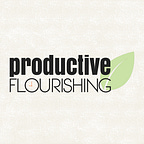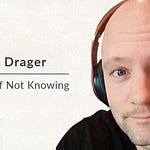In this Q&A, Angela joins Charlie to answer questions from the Campfire about why they have a no electronics rule in the bedroom or dining room area, how to determine if your current focus block isn’t going to work and how to switch to something else, and how to conduct a mid-month review.
Key Takeaways:
[1:02] - Angela and Charlie have a no electronics rule in the bedroom/ at the dining room table . How did they decide to do this, how do they actually do this, and what do they feel like it’s done for them? How can the listener incorporate this without feeling like they might miss out on business opportunities if they’re not always available?
[1:45] - Firstly, Charlie encourages letting go of the 24/7 availability, unless you are really in an emergency response role. This way, your clients are getting the best you have to offer when you are available. Additionally, we miss more business opportunities because we’re frazzled, not because we’re not available.
[4:20] - Angela and Charlie have been following this rule for about ten years. It began to get frustrating when one would be on their phone while the other was talking, and they wanted to spend the time they had together actually being together. They have a place for their phones when they get home, and also don’t have a television in their bedroom. This allows them to be intentional about their media consumption.
[10:30] - This was born out of personal observation of people browsing through their phones while being engaged with others, and it really started to bother Angela. Charlie and Angela had several discussions about it to figure out the best way to implement and carry it out.
[14:05] - It’s awfully easy to get back into those habits of being constantly connected to our devices, but when we take a step back, we can use that time to connect with ourselves and those around us. To start, we can think about what would feel good to us, then communicate that to clients or family, so we can show up at our best for them.
[20:09] - Jeremy from the Campfire wants to know: How do you determine if your current creative block (focus block) just isn’t going to work and you switch to something different? How do you get back on track with a creative block (focus block) once you start falling off track?
[21:05] - There is a quick recap of what focus blocks are and how they work. Charlie touches on some things that may make it difficult to get through one: getting through the thrash/ resistance and being human. Sometimes, it’s hard to decide where to start or whether something is working. Other times, you might just be in a fog - whether it’s hunger, or exhaustion - and it’s important to understand that this could affect your work.
[26:19] - Taking some time before you start to check in with yourself can help you re-center and get started, or evaluate and decide if you’re time is going to be well-spent in your current state. You may need to take care of yourself before you get started on a focus block.
[28:15] - The last question asked is, can you please explain how to conduct mid-month reviews? What should we be focused on, and what should we look for?
[28:54] - A lot of times when you are in a monthly planning cycle, by the end of the month you might forget what you’re working toward. A mid-month review is important for staying on track and making sure you know where your goals are headed.
[29:46] - Look for a good time in the middle of the month, maybe a Sunday or a Monday. Questions to ask: What have you accomplished this month? What goals or projects need to be adjusted or dropped based upon what has actually happened? What are the priorities for the rest of the month? What bills need to be paid, and what funds are in place to pay them? What projects or tasks have fallen off the radar? When was the last time you rewarded yourself, and when will be the next?
[35:20] - It doesn’t take too long to conduct a mid-month review. Try not to conduct it in your workspace; do it in a place where you can focus on it and be complete about it. The process allows you to start with the good, look for improvement, and then end with a reward for yourself - this is a very encouraging and important process!
[38:01] - Summary of questions and topics discussed. How will they help you flourish this week?
Mentioned in This Episode:












